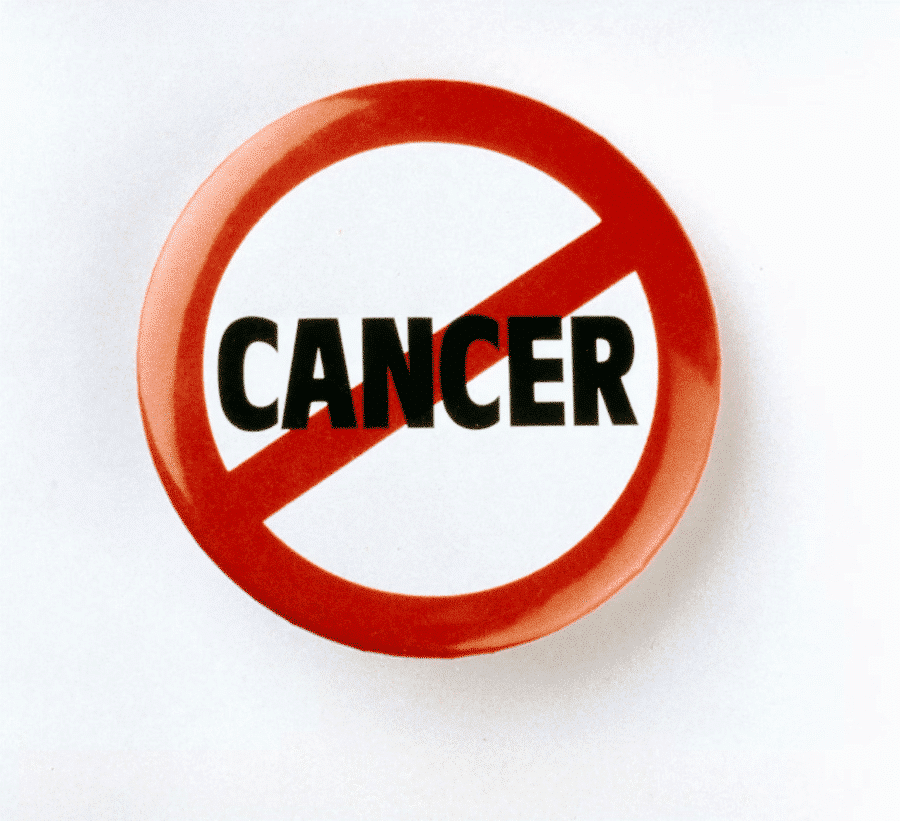No one can guarantee that cancer will never return once you complete your treatment. If any cancer cells are left in your body, they can start to grow again over time.
Though you cannot completely prevent cancer from recurring, you can still take certain actions to keep yourself as healthy as possible.
Things like eating a balanced diet, taking regular exercise, ensuring your follow-up visit to your doctor, regular screening, and a few other preventive measures are helpful to reduce the risk of cancer from coming back.
Below are twelve healthy behaviors that will help you go a long mile to improve your health condition and lower the risk of cancer.
Have a Healthy, Balanced Diet
Although a healthy balanced diet cannot prevent cancer, it can reduce the risk of coming back and improve the chance of survival.
Tips to Follow –
- Fill your daily plater with a variety of colorful whole fruits.
- Take a variety of vegetables each day, including red, orange, and dark green vegetables. Also, eat fiber-rich legumes such as peas and beans.
- Cut back on red meat such as pork, lamb, and beef and processed meat, including luncheon meats, hot dogs, and sausage.
- Eat fish, chicken, or beans instead of processed or red meat.
- Choose food that is made of whole-wheat and whole grain rather than white bread and sugary cereal.
- Limit sugary beverages and animal fat.
- Avoid store-bought snacks and fast food.
- Choose dishes that are made with canola or olive oil, as they are enriched with healthy fats.
Keep a Healthy Weight
Maintaining a healthy weight has some amazing health benefits, including reducing the risk of cancer remission. So, if you are obese or overweight, you need to burn out some calories and lose your weight.
Tips to Follow –
- Try to avoid unplanned snacks and meals. Keep a routine meal and never skip meals.
- Cut down calories by taking a small portion of healthier fats from fish and nuts. Also, choose leaner meat and reduced-fat dairy products.
- Pick a healthy snack, including plain popcorn or a piece of fruit instead of chocolate or biscuits.
- Before purchasing any food, look at the labels and pick the options that are high in fiber and low in fat, salt, and sugar.
- Be cautious with the intake portion of food and drink because eating the right amount is also crucial.
- Take water or sugar-free squash. Avoid energy drinks or fizzy drinks. Do not take more than one glass of fruit juice daily.
- Eating food slowly and away from distractions like watching TV can lead you to eat less in one go.
Get Screening Tests
Different types of screening tests are used to find cancer in the first place. You can also do a blood test for health screening as it helps you diagnose cancer clues when it is more treatable. It can help you detect cancer or any growth before it gets worse.
Talk to your healthcare provider about these screening tests. Guidelines may vary from person to person at different ages.
Vitamin and Supplement
There is a belief that taking certain vitamins, dietary supplements, and other herbs can give people an extra edge in preventing cancer recurrence. But there is no scientific evidence that supports that belief.
Some studies show that taking supplements that contain high levels of nutrients may have harmful effects on survivors.
Your doctor may suggest you do some blood tests to identify if you are low in any certain vitamins. Depending on these tests, he may recommend certain supplements so that the levels of that particular vitamins rise.
But there is no evidence that high vitamin levels can reduce cancer recurrence. So, getting your nutrients from the diet is better than taking vitamins and supplements.
Physical Activity
Taking part in physical activity not only helps in controlling weight but also lessens the risk of colon cancer and breast cancer. Doing any amount of regular physical exercise has many health benefits.
It can reduce depression and anxiety, improve self-esteem, boost mood, and reduce the symptoms of nausea, pain, fatigue, and diarrhea. To gain the most benefits, strive for moderate to vigorous aerobic activity.
Tips to Follow –
- Aim to get at least 30 minutes of physical activity daily; more is better.
- Strive for at least 75 minutes of hard physical activity in a week and at least 150 minutes for moderate.
- Taking 10,000 steps of walking a day.
- Take part in strength training exercises at least 2 days a week.
- Limit the number of lying down or sitting times.
- Do all the normal daily activities, including household chores, gardening, etc.
- Make exercise your habit and count it fun.
- Go to the gym, if possible.
Stop Smoking
Staying away from smoking is one of the best ways to reduce the risk of cancer. The harmful chemicals in cigarettes can harm the entire body. Though it’s hard to give up for good, you have to do it for your survival.
Tips to Follow –
- Keep trying though it requires a few more attempts to quit permanently.
- Seek help from a doctor; it will increase the chance of your success.
- You can use a combination of stop-smoking products and treatments and specialist help and support to quit smoking.
- Inform your children about the dangers of smoking. The best message to make your children alert is being tobacco-free yourself.
Limit Alcohol – Zero Is Best
Drinking alcohol increases the chance of developing different types of cancer. The more you take alcohol, the greater the chance of cancer increases. So, the overall healthiest choice is zero alcohol.
Tips to Follow –
- Avoid those occasions where alcohol is centered around.
- Drink nonalcoholic beverages if needed.
- Contact a healthcare professional if you feel a problem with alcohol.
- Talk about the bad effects of drinking alcohol with your friends and children.
Enjoy the Sun Safely
Basking in the sun can make you feel great, but too much exposure can result in skin cancer. The ultra-violate radiation of the sun can damage the DNA of your skin cells and cause skin cancer.
If you can ensure to enjoy the sun safely, it will reduce the chance of cancer.
Tips to Follow –
- Avoid the direct sunlight of midday sun between the hours of 10 AM and 4 PM.
- When staying outdoors, keep yourself in the shade as much as possible.
- Use sunglasses, long-sleeve shirts, and a broad-brimmed hat to protect yourself from UV rays of sunlight.
- Wear clothing of dark or bright colors as they reflect the sun’s harmful rays than bleached cotton or pastels.
- Don’t use tanning beds, sunlamps, or tanning booths because they are as harmful as sunlight.
- Use sunscreen with SPF 30 or more.
Get Vaccinated
If you can protect yourself from certain viral infections, you will likely protect yourself against cancer. Contact your healthcare provider to get a vaccination against –
- Hepatitis B – Hepatitis B increases the risk of liver cancer. Adult people who have more than one sexual partner or people whose partners have sex with others are at high risk of these sexually transmitted infections.
Apart from those, people who take illegal drugs, men who have sex with public safety workers, or health care workers who have contact with body fluids or infected blood.
- Human Papillomavirus (HPV) – HPV is another sexually transmitted virus that can cause cervical cancer, squamous cell cancers of the neck and head, as well as other genital cancers.
The HPV vaccine is offered to children aged 11-13 and some other groups. However, the vaccine is proven to be effective and safe. And it helps people protect against this HPV infection.
Protect Yourself from Sexually Transmitted Infections
Different types of infections are transmitted sexually, such as HPV, HIV, and hepatitis. These infections can lead to different types of cancer. If you can protect yourself from these infections, it can decrease the risk of cancer.
Tips to Follow –
- Try to practice sex safely; it will limit the chance of getting affected by sexually transmitted infections.
- Limit your sexual partner. The more sexual partners you have in your lifetime, the higher the chance of getting infected by HPV or HIV.
- Use a condom.
- Gather more information on how to have sex safer and ensure a healthy sexual condition.
- Follow the recommendations of the HPV vaccine.
Take Regular Medical Care
One of the most important ways to reduce the risk of cancer coming back is to get proper medical care regularly. When you do regular self-exams and screening tests for cancer, it will raise the chances of reducing the risk of cancer as these tests help you find cancer early.
Medical treatment will be more likely to be successful when your cancer is found at an early stage. So, seek help from a healthcare provider to tell you what is the right cancer screening schedule for you.
Seek Help from Patient Support Groups
For some people, the thought of cancer coming back become a fear. They find it very difficult to make them relief from that particular fear that they encounter in their daily life.
Some people try to deal with this fear by focusing on doing the most important and interesting things or by distraction.
Some also take other necessary measures to minimize their stress, including asking for help from a mental health professional or joining a patient support group.
Others may talk to the cancer care team about their concerns and worries. Eventually, These will help them live their lives to the fullest and deal with their emotions.
Final Words
If you can strictly follow these cancer-preventing tips, you can hope to take control of your health. However, if you find it difficult to adopt all those behaviors simultaneously, try choosing any one or two of them to start with.
Once you get used to these behaviors, don’t be late to move on to the other steps. Plus, whenever you feel any kind of pain or ache or notice any signs of cancer recurrence, contact your doctor as early as possible and take proper medication.





